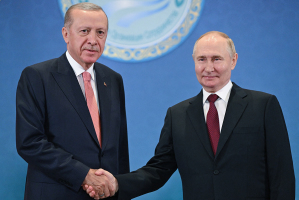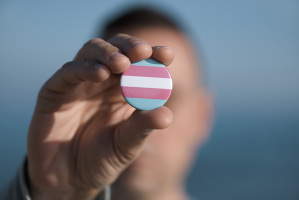How to forgive even the person who killed mother

During WWII, a year after my infant mother was smuggled out of the Warsaw ghetto in a backpack, she was hiding with her mother — my grandmother — in an attic room on the city’s outskirts. But they were Jews, and the Gestapo discovered them. They killed my grandmother, yet my mom miraculously survived the attack.
Decades later, my mom converted to Christianity. Despite the fact the Nazis had gassed her grandparents, aunts, and uncles in Treblinka, she forgave them –– even the man who shot her mother. She spent the rest of her life speaking to Christian churches and congregations around the world, telling them: “You only have to decide to forgive, and God will give you the enabling.”
As the daughter of a Holocaust survivor, forgiveness for me is not about downplaying past wrongs, but more about freeing ourselves from legacies of hatred and hurt –– by moving toward a future built on understanding and compassion.
“Forgiveness is not the same as condoning the action,” said Tyler VanderWeele, epidemiology Professor at the Harvard T. H. Chan School of Public Health. VanderWeele defines forgiveness as “replacing ill will toward an offender with goodwill.”
My mom’s journey to forgiveness was complicated. After her mother’s death, her father gave her to his wife’s sister and her husband to care for while he joined the Polish Resistance to fight the Nazis. Eventually, the three of them were arrested and sent to Auschwitz. My 18-month-old mother was left behind. She ended up hidden in a convent, cared for by Catholic nuns who risked their lives to hide the Jewish child. After the war, at 5 years old, her aunt and uncle adopted her, but they kept the truth about her biological parents a secret. This secret continued until my mom was 32, when her father tracked her down and sent her a tell-all letter.
But before this shocking revelation, growing up, my mother had always sensed she’d been reunited with the wrong parents. They dismissed her nightmares of armed men in jackboots and of hiding in dark rooms. They adored her brother, but, she claimed, they beat her. When my mom was 15, she accepted Jesus at a friend’s house after experiencing the overwhelming warmth and love of her friend’s Christian family, but her conversion only exacerbated the alienation she felt from her atheist “parents.” They were furious, even though they’d never taken her to a synagogue.
Despite my mom’s newfound Christian faith, she continued to forge her way through life feeling unwanted, even after she married and started her own family. She told me that because she hadn’t experienced love growing up, she struggled to accept God’s love and to understand forgiveness. She battled with depression and anger.
“Forgiveness has been used by institutions to require people to give up their anger, sometimes anger which is justified,” said Minister Matthew Ichihashi Potts, a Harvard Professor of Christian Morals. “Especially for victims of abuse, trauma, or violence, that deep pressure to forgive … can be burdensome and re-traumatizing.”
My mom did not know it at the time, but during the war, she had witnessed and survived three massacres.
Eventually, through The Lord’s Prayer, my mom came to understand that to forgive is a choice. “Once I received the forgiveness of God, then I was able to forgive others,” she would tell church congregations. She not only chose to forgive the people who raised her for not being able to show her love physically. After discovering the truth about her family, she forgave her biological father for giving her away. She even forgave the Nazis for killing her mother. My mom’s Christian faith and her church community helped her to heal from her childhood traumas.
Given the fractious times we live in today, forgiveness can help us connect more respectfully with those who have differing opinions. It helps to defuse insults and to promote unity in our nation. Showing goodwill towards people helps us to listen to and learn from each other’s stories –– acknowledging one another’s pain. It helps us to shun the discord and language that divides people into ‘us’ versus ‘them’ –– language that can fuel hatred and deepen misunderstandings.
Karen Kirsten is an Australian-American writer, journalist, and Holocaust educator who speaks on the topics of hatred and reconciliation around the world. She is the author of the forthcoming World War II memoir, Irena’s Gift, a story of her quest to uncover her family’s war-torn history.




























